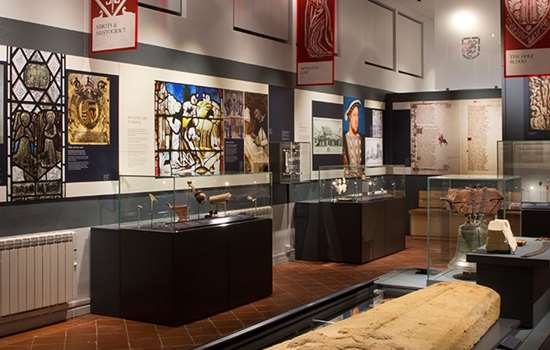04/07/2017
Women's Voluntary services founder honoured with Blue Plaque
Working out of her Westminster headquarters, Stella Reading's WVS brought together a million volunteers and provided much needed aid during the Second World War.
A blue plaque for the founder of the Women's Voluntary Services (WVS), Stella Reading, has been installed at her former Westminster headquarters.
Under Reading's leadership about a million volunteers contributed to the war effort, from looking after child evacuees and collecting aluminium for aircraft, to making thousands of cups of tea. They were known as the 'ladies in green' during the Second World War in reference to their moss-coloured uniforms and have also been nicknamed 'the army that Hitler forgot'.
Reading's blue plaque was revealed at 41 Tothill Street by Royal Voluntary Service Ambassador and Keeping Up Appearances actress Dame Patricia Routledge. The WVS headquarters were located in a single room in this building from 1938 to 1966. Today the building houses a hotel and restaurant.
Dame Routledge praises the sacrifices made for the country by Reading and the WVS. She said:
It has been an honour to see the remarkable Stella Reading commemorated by English Heritage with a blue plaque at the organisation's original headquarters.
A pioneer of the Women's Voluntary Service, she was tireless in her efforts during the Second World War and it's wonderful to see both her legacy and that of the WVS founding building recognised.
English Heritage's Curatorial Director, Anna Eavis, said:
Stella Reading's energy, tenacity and compassion brought together an army of a million volunteers in the service of those who needed them most and established a model that continues to thrive.
A STRONG-WILLED HERO
Reading (1894-1971) often worked up to 18 hours a day, and was known to be a strong-willed woman with a commanding presence and a dry sense of humour. In 1940 she told Good Housekeeping that 'woman have the most difficult of all jobs - running men, who think they run things, and are happy in the thought.'
After the war, the WVS focused on helping the sick, imprisoned and elderly. Meals on Wheels and Home Help visits were among the innovations introduced with great success. It survives today as the Royal Voluntary Service.
Find out more about Stella Reading by visiting our blue plaques page.
Download the free app now from the Apple App Store for iPhone or the Google Play Store for Android.
For more from English Heritage, follow us on Facebook, Twitter and Instagram.
More Recent News
-

Study reveals jousters are as fit as today's top athletes
Jousters need fitness to rival professional footballers, top tennis players and Forumla 1 drivers, English Heritage research reveals.
-

New museum at Hailes Abbey reveals a hidden past
The dramatic story of a Cotswold abbey that was the centre of Christian pilgrimage for nearly 300 years is explored in a new museum, featuring rare artefacts and new information.
-

Queen Victoria's Terrace opens for the first time
Queen Victoria's garden terrace within her holiday home at Osborne will open to the public for the first time. Visitors can now enjoy the Lower Terrace like the royals did more than 150 years ago.